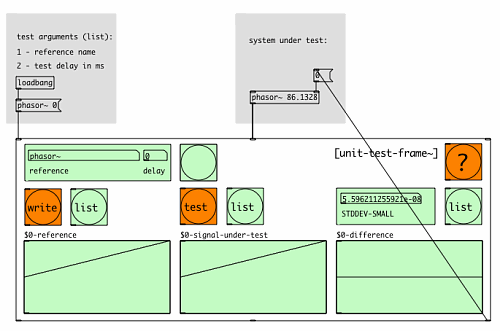
This page presents [unit-test-frame~]. It is a Pure Data abstraction
helping to create unit tests for signal objects. Unit-test patching is
now a matter of minutes, depending on how familiar you are with the
objects under test.
 |
These screenshots illustrate a couple of examples. Only the objects
in the grey rectangles need to be instantiated for a specific test.
They are connected to [unit-test-frame~], which does all the work.
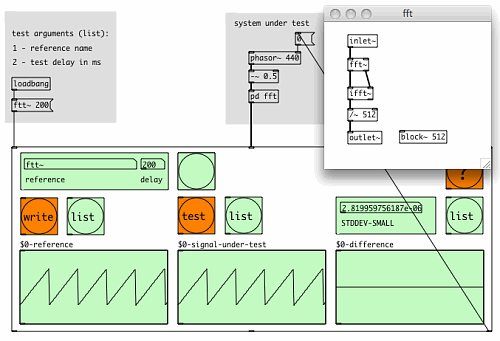 |
Using a Pd build which is known to work well (the latest release is
an obvious choice), a reference .wav file can be written to disk. The
file stores 512 samples in 32 bit floating point format. This reference
file will be automatically loaded with the test patch as long as they
are kept together in a directory.
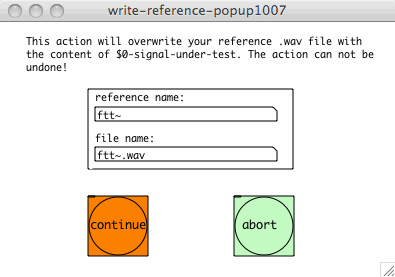 |
With the reference file stored, the same object can now be tested
after some change in the code, or a change in the way it is compiled. I
use the tests to check what happens if Pd is compiled with all floats
in double precision (see http://www.katjaas.nl/doubleprecision/doubleprecision.html).
Below is an example of an object which apparently does not work in
double precision, [cyclone/bitand~]. The test abstraction computes the
differences between reference and signal under test, and also the
standard deviation. In this case it is not so spectacular, because the
object output has plain zero's.
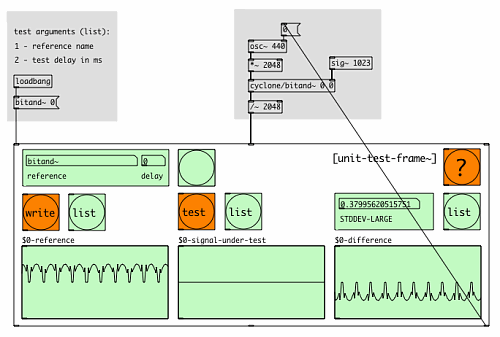 |
In the process of fixing the bug, it is very helpful to have the
test patch as a monitor. A few lines of C code are quickly written,
while testing can be very time-consuming if there is no systematical
way to do it. With the [unit-test-frame~] abstraction, testing time can
be reduced to the minimum.
For testing of control objects a similar abstraction is available, named [unit-test-frame]. For convenience, it produces an index series 0 - 511 which can be used to generate an output series from the object under test.
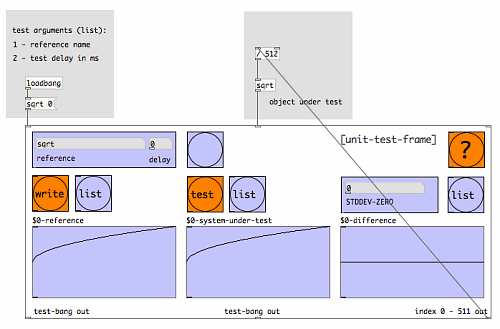 |
When a bug is fixed, the use of a test patch has not come to an end.
Since [unit-test-frame~] performs a test automatically when the patch
is loaded, a bunch of unit tests can be run using a script. The
standard deviation is sent to the Pd window via [print], and to stdout
via [stdout]. The values are tagged with STDDEV-ZERO, STDDEV-SMALL (for
deviations not larger than 1e-05) or STDDEV-LARGE. This way, it is easy
to track down disfunctional objects from a test log. Ideally, you could
have such tests for all classes and run them on the Pd-extended nightly
builds. The binary code would then be constantly monitored, and you
need not wait for unfortunate users to report issues. Even if you do
not rewrite code, there may be changes in the binary builds. For
example, when a compiler is upgraded, or a dependency has changed.
|
|